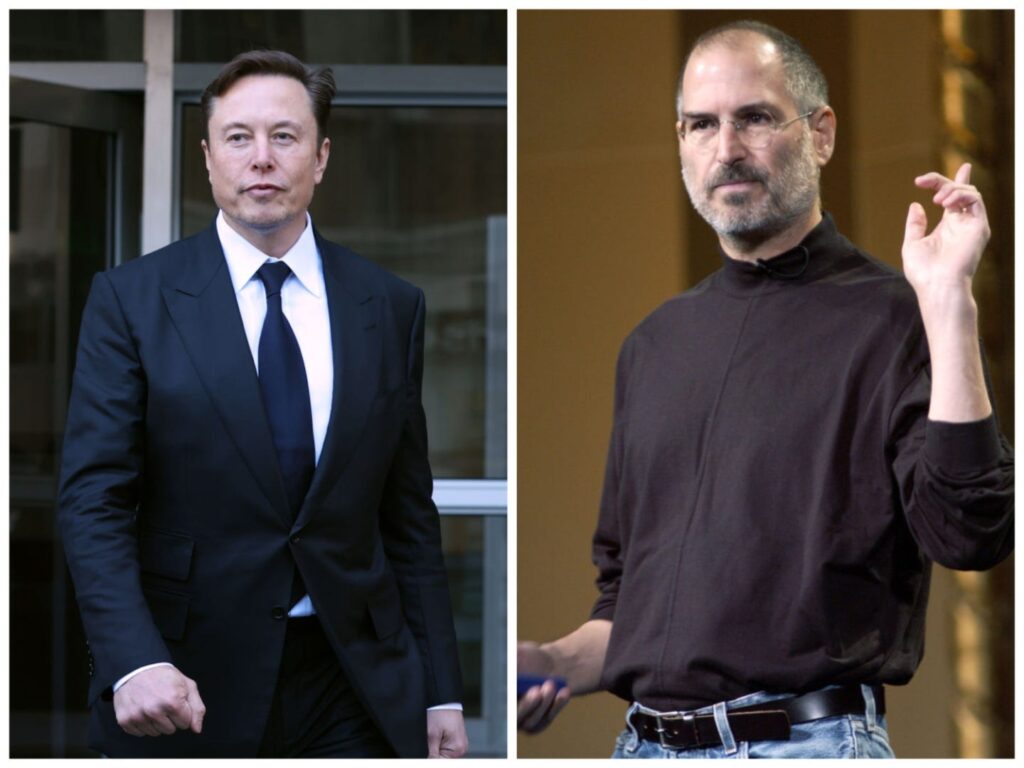- Walter Isaacson trailed Elon Musk for years and interviewed Steve Jobs over 40 times to write their biographies.
- He identified some similarities between the two, including their personalities and biggest weakness.
- The biographer also noticed a few key differences in the ways they ran their businesses.
It turns out that two of the world’s most famous tech entrepreneurs have a lot in common — at least according to their biographer.
Elon Musk’s biographer, Walter Isaacson, once said that the Tesla CEO was “in some ways the Steve Jobs of our time.” And after over two years trailing Musk and interviewing Jobs over 40 times when preparing to write their respective biographies, Isaacson probably knows a thing or two about any overlapping qualities.
Throughout his new book on Musk, Isaacson repeatedly compares the Tesla CEO to Jobs — from their personalities and management styles to their biggest weakness. In fact, the Apple cofounder’s name appears two dozen times in the book.
Here are some of the similarities and one key difference Isaacson identified between Jobs and Musk.
Both Musk and Jobs had a “dark streak”
“When I was reporting on Steve Jobs, his partner Steve Wozniak said that the big question to ask was ‘Did he have to be so mean? So rough and cruel? So drama addicted?” Isaacson wrote in his biography on Musk, adding that Musk’s behavior calls for the same question.
Isaacson has said Musk had a “dark streak” that his ex-girlfriend Grimes dubbed “Demon mode” — a mindset in which Musk lacks empathy and will be likely to rip into a worker or demand employees sprint toward an unrealistic deadline.
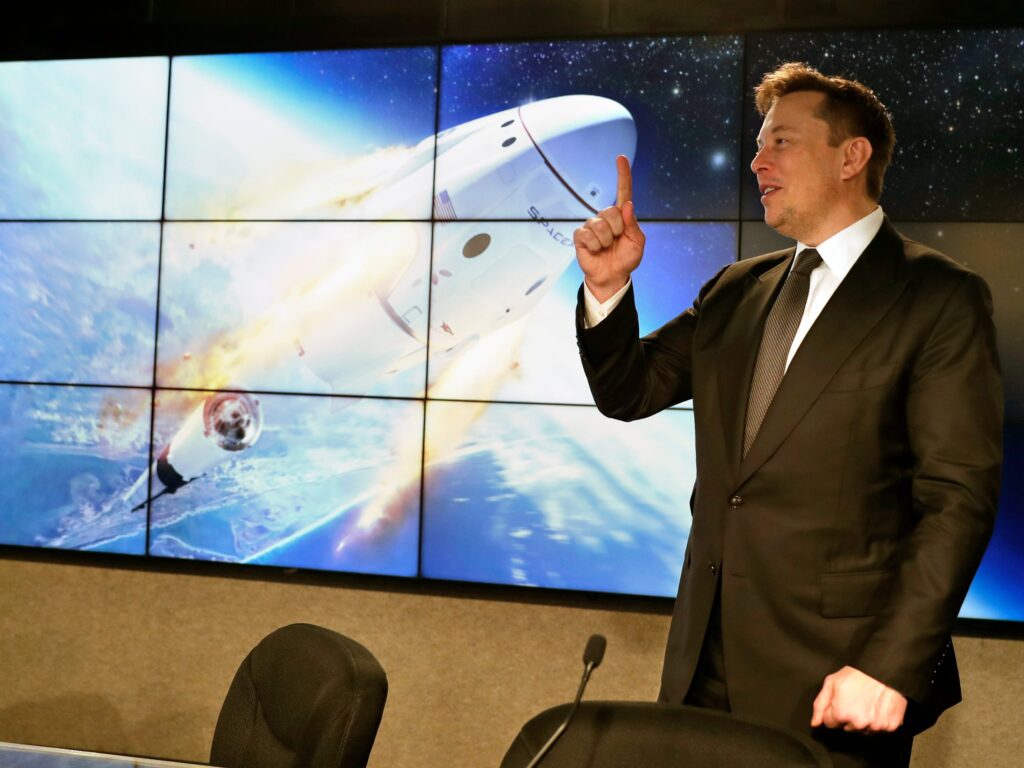
The biographer said Jobs and Musk even shared a common phrase they’d use while on the verge of criticizing an employee: “That’s just the stupidest thing I’ve ever heard.”
“Their brutal honesty could be unnerving, even offensive,” Isaacson wrote of Jobs and Musk. “It could constrict rather than encourage honest dialogue. But it was also effective, at times, in creating what Jobs called a team of A players who didn’t want to be around fuzzy thinkers.”
Musk did not respond to a request for comment from Insider ahead of publication. He has denied claims he rips into employees in the past, calling them “false” on Twitter and saying he gives “clear and frank” feedback.
Ultimately, the biographer said the two men didn’t have as much empathy and as a result, were more able to focus on accomplishing a larger mission.
They “lacked an instinct for camaraderie”
Isaacson said both men could be difficult to work with and friendship didn’t come naturally to either Jobs or Musk.
“Like Steve Jobs, he genuinely did not care if he offended or intimidated the people he worked with, as long as he drove them to accomplish feats they thought were impossible,” Isaacson wrote of Musk.
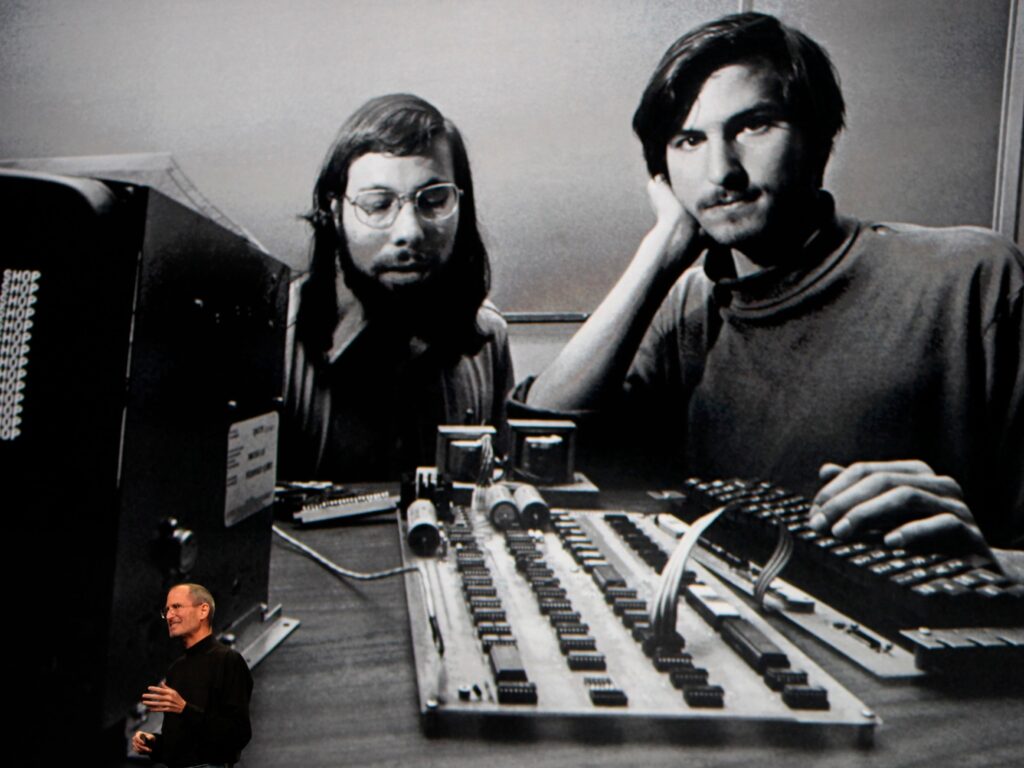
The author said both Jobs and Musk took on the role of “alpha male” and exercised a high level of control over even the most minute details at their companies, either ousting or forcing their cofounders to take a backseat role in the process. Isaacson pointed to Jobs’ relationship with Wozniak at Apple and Musk’s tumultuous relationship with Tesla cofounder Martin Eberhard.
They have the same weakness
Isaacson said both men’s strong sense of urgency and high expectations for employees fed into their greatest weakness — a propensity for setting overly ambitious deadlines.
“If you set an aggressive schedule that people think they might be able to make, they will try to put out extra effort,” Tom Mueller, one of Musk’s former righthand men at SpaceX, told Isaacson. “But if you give them a schedule that’s physically impossible, engineers aren’t stupid. You’ve demoralized them. It’s Elon’s biggest weakness.”
Isaacson wrote in Musk’s biography that Jobs had a similar “reality distortion field.”
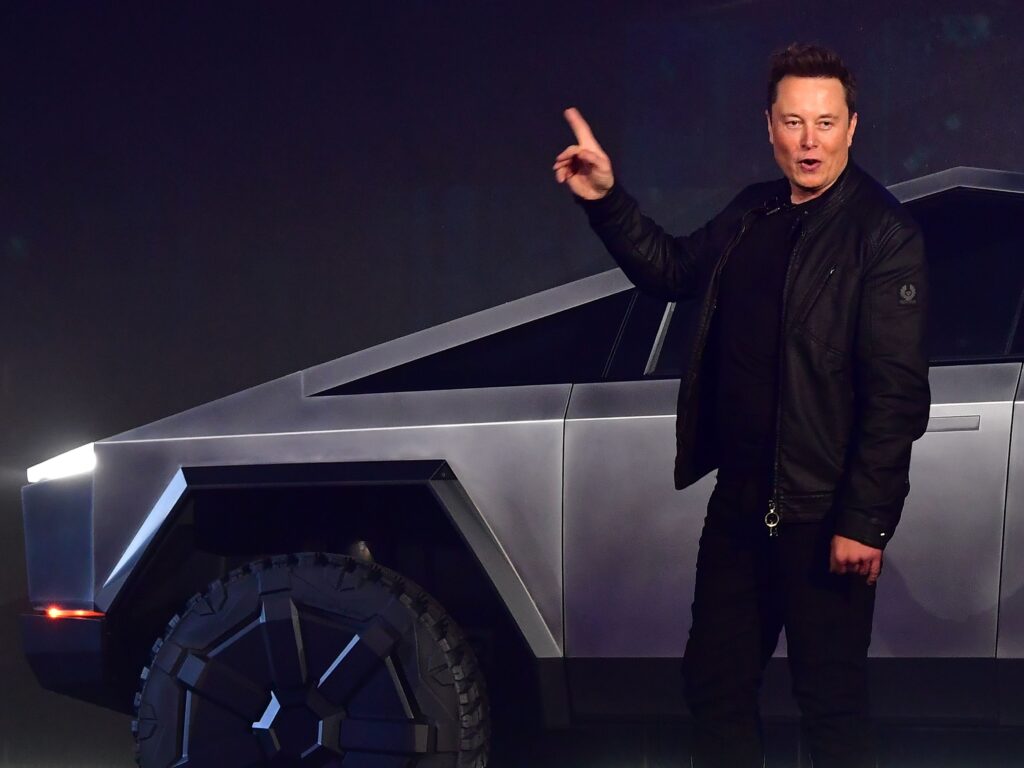
Jobs reportedly gave a two-week deadline to the engineers working on the original iPhone to nail down a vision for the software for the device, threatening to reassign the work to another team if they couldn’t finish in time, according to The Wall Street Journal.
At Tesla and SpaceX, Musk has been known to drive for aggressive deadlines that continually shift. For example, the billionaire has been promising self-driving cars are on the horizon since 2015 and has shifted the deadline for Tesla’s Cybertruck multiple times over the past two years.
Isaacson notes Musk and Jobs’ strict approach to deadlines can be “demoralizing” but it also allows their companies to outpace their competitors.
Both men “had a passion for simplicity”
Musk and Jobs had similar design instincts, Isaacson said.
“This followed the principles that Steve Jobs and Jony Ive had instilled at Apple: design is not just about aesthetics; true industrial design must connect the looks of a product to its engineering,” Isaacson wrote of Musk’s plans for Tesla.
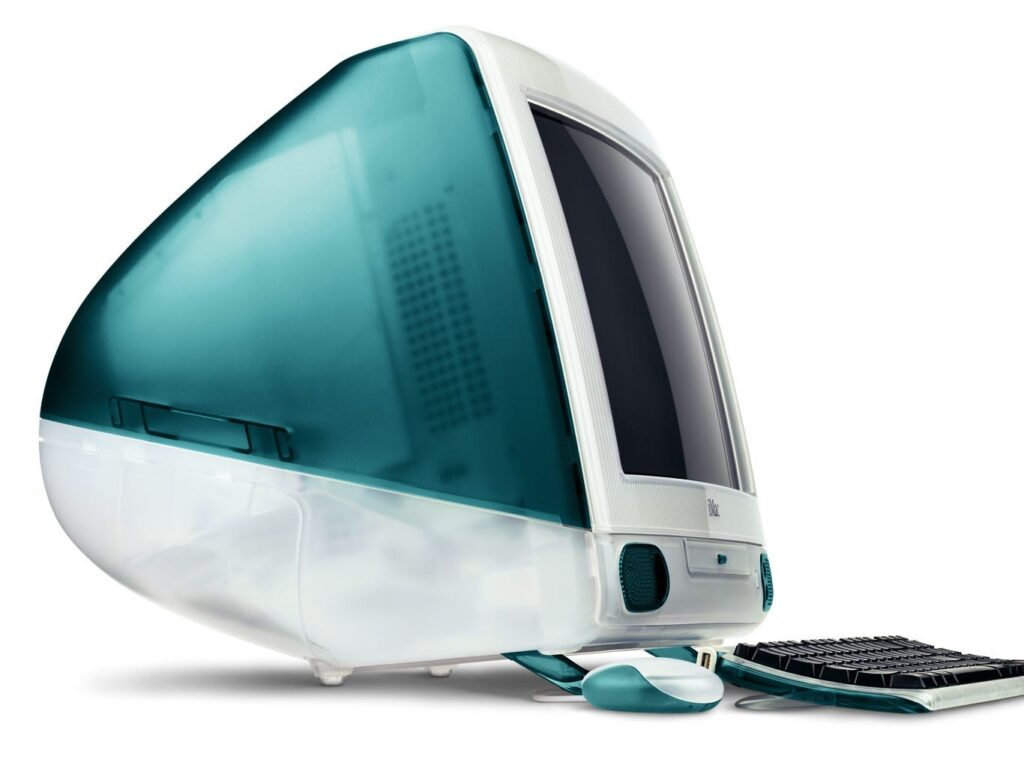
In Musk’s biography, Isaacson also points out similarities between Tesla’s flush door handles and Apple’s 1998 iMac handle — both designs that didn’t do much toward functionality, but aimed to increase the “friendliness” and accessibility of the product.
Isaacson said Musk developed a similar relationship with the EV company’s design chief, Franz von Holzhausen, as Jobs once had with Ive.
Both Jobs and Musk also understood the importance of creating “buzz” around their products that “transforms it into an object of desire,” Isaacson wrote.
Isaacson was also quick to point out some key differences
The biographer said that while the men had similar levels of intensity and visions for their products, Musk is more of a hands-on engineer than Jobs was.
“As much as I think Steve Jobs is a total genius, Steve Jobs would design a product, be it the Mac or the iPhone, and then it would be thrown over the wall to some manufacturing facility in China or something. He never visited the factory,” Isaacson said last month at an event hosted by the Economic Club of New York.
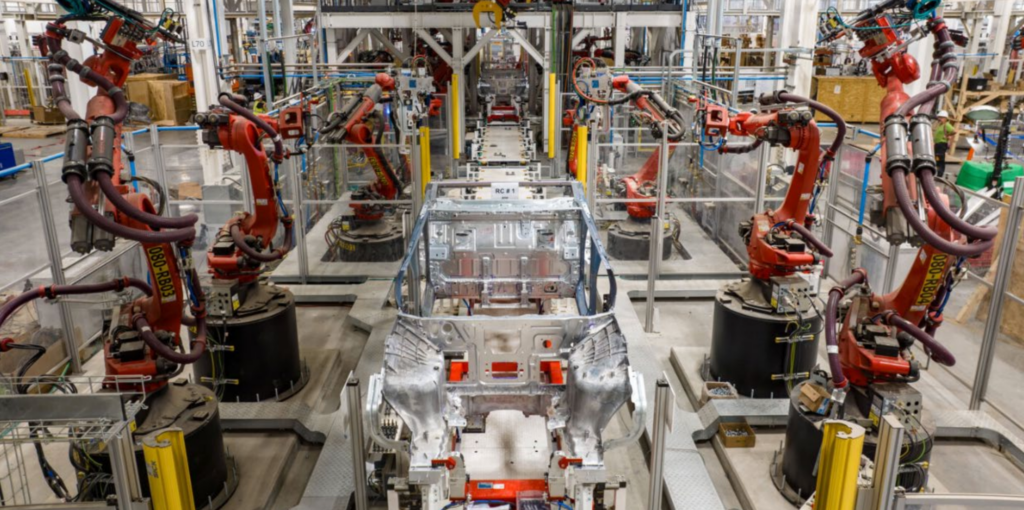
"Musk spends about 10 times more of his mental and physical presence on the factory lines as he does in the design room, and he believes that designing the machine that makes the machine is more important than designing the original product," he added. "He feels that you can't be innovative unless you're iterating on an hourly basis."
Musk has been known to walk the production line at Tesla and SpaceX, as well as sleep at Twitter or Tesla's headquarters during long product sprints.
